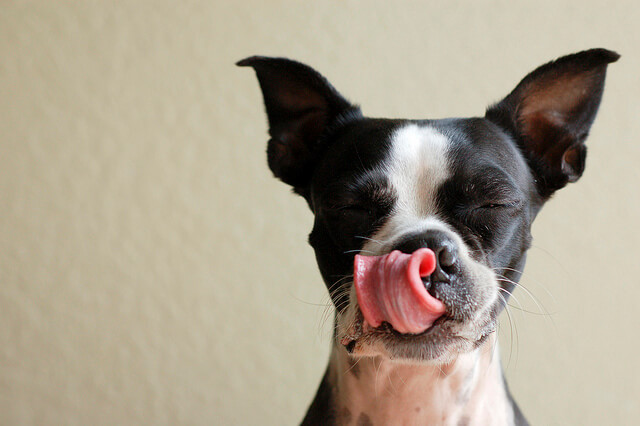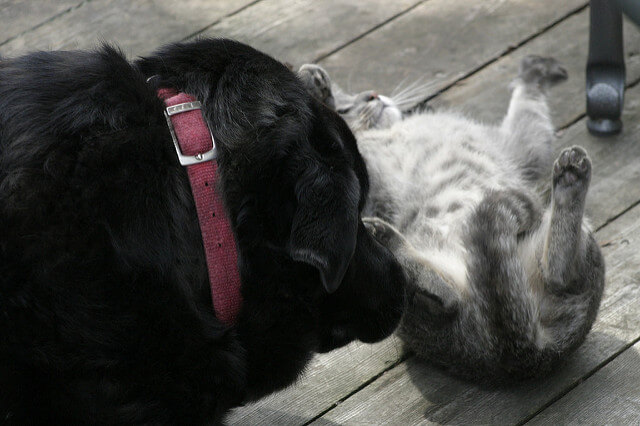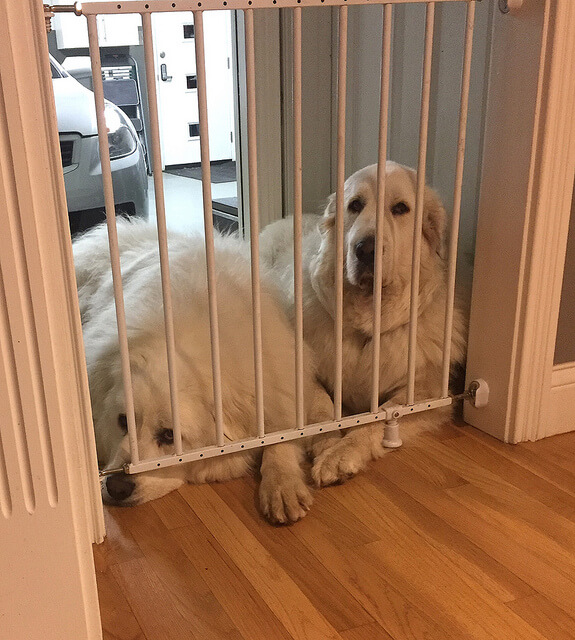You’ve seen your dog dine on things you’d never think about putting near your mouth, but the “snacks” he pulls out of the cat’s litter box are by far the worst.
Eating cat poop is an unfortunately common problem for dogs, and it’s a bad habit all dog owners hope to break. His muzzle gets coated with those chunks of litter, his bad breath reaches a new level of awful, and he seems to always choose the minutes after his poo pillaging to offer you not-so-sweet doggy kisses. It’s called coprophagia, and it’s a problem countless dog owners have to deal with. Here’s what you need to know about the stomach-churning habit.

Why Do They Do It?
Believe it or not, chomping on cat poop is a natural behavior for dogs. You already know all about those wolfish instincts that drive your dog’s wild side, but most people like to romanticize that connection. They think of wolves as majestic creatures, but those kings of the forest do a lot of things you’d find more than unsavory.
Their low standards for food is an example. Dogs are natural scavengers, and they’ll find food wherever they can. They eat sticks, rocks, your shoes, and yes, feces. For most dogs, their obsession with cat poop started as an innocent exploratory mission. They smelled something similar to the good stuff their friend the cat gets to eat, and they decided to try it. It tasted good, and that reward turned into a habit.

Besides a dog’s natural tendency to eat gross things, coprophagia is also related to a dietary deficiency. Your dog’s pancreas houses important enzymes that are important for their overall health. They produce some of the enzymes themselves, but they rely on food for others. If their diet isn’t giving them what they need, they won’t be able to properly absorb nutrients, and all that good stuff will exit their body when they go to the bathroom.
Dogs with this kind of problem will often go to disgusting lengths to get what they need from their diet. If your poop-eating pup is losing weight, talk to your vet about changing their diet.
How To Stop It
Every time your dog indulges in a poo treat, he’s at risk of contracting some kind of parasite or bacteria. Cat litter will cause blockages in his digestive system, and many of the diseases he could pick up from the litter box can also be passed to humans.
The easiest and most effective way to stop your dog from raiding the litter box is to remove the temptation. Put the litter box in a closed-off room and install a cat door or a baby gate. If that’s not an option, try a shelf that your agile cat can get to but is out of reach for the dog. You can also invest in a “dog proof” litter box, but determined dogs can usually puzzle their way through that trick.

Taking away access is your best chance at breaking the habit, and the idea of “no poop for you” can be reinforced with training. Canine behaviorists warn people, however, to not get their hopes up. Every time your dog sneaks a snack, he’s instantly rewarded. If you punish him, he’ll learn to do it when you’re not looking. Your best shot is to reinforce the “leave it” command. Let him see the litter box full of his favorite delicacy, and when he resists, reward him with something even better—like a big dollop of peanut butter or a piece of chicken. Your dog should start to understand your point, but don’t be surprised when he breaks the rules the next time you leave the room.
There’s nothing that will make your dog’s craving for feline feces any less disgusting, but you can feel at least slightly relieved knowing it’s a normal behavior. Your pup isn’t the only one that’s been caught with litter around his lips, and it is possible to make it stop. If you’re concerned that your dog has a dietary issue or a parasitic infection, contact your veterinarian.
